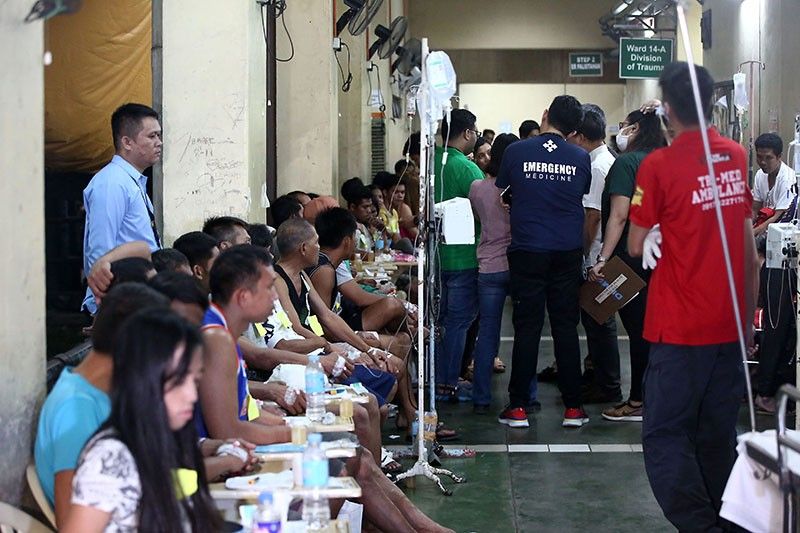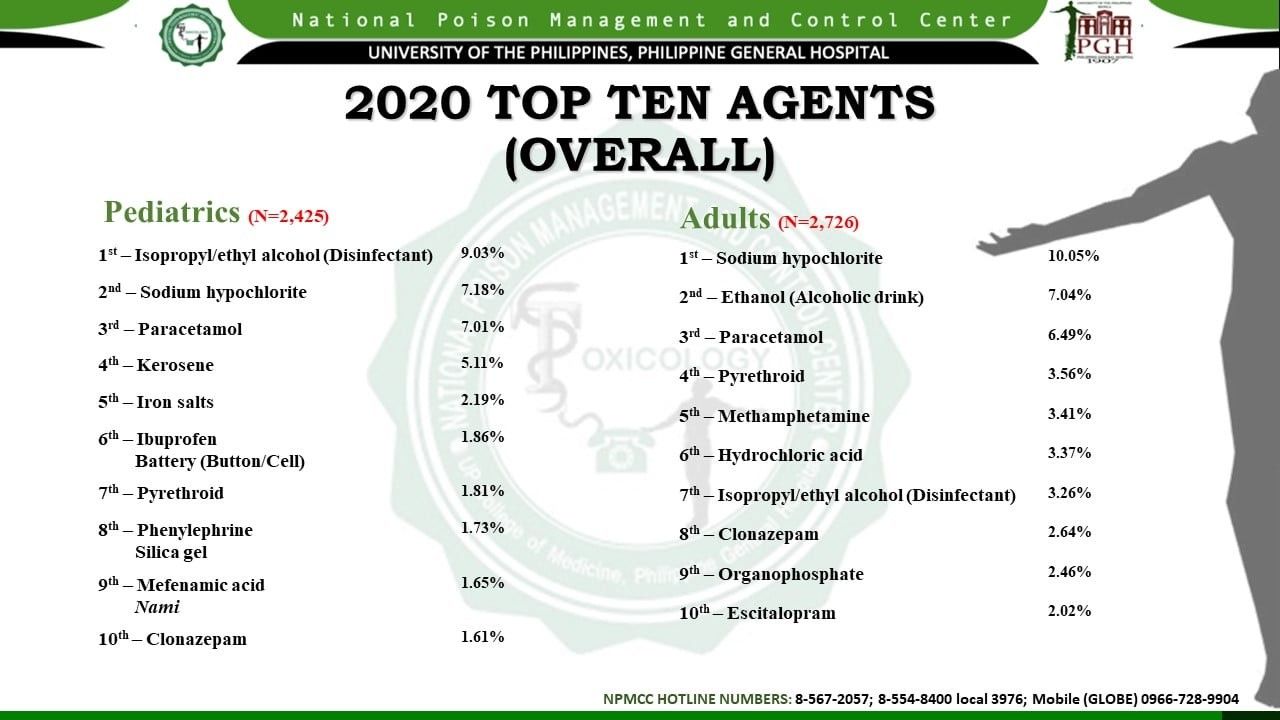Toxicology experts urge poison prevention, preparedness at home

MANILA, Philippines — Ahead of the annual National Poisoning Prevention Week, toxicology experts and advocates called for poison preparedness and prevention at home and in the larger community to avoid incidents that can injure and kill.
The Philippine Society of Clinical and Occupational Toxicology and the nonprofit EcoWaste Coalition issued the call to action in a statement Sunday morning, saying "an ounce of prevention is worth a pound of cure."
“We advise every family to be aware of the potential hazards in their household and community and to take preventive measures that will protect everyone, especially young children, from poisoning agents that can be ingested, inhaled, absorbed by the skin or splashed in the eye,” said Carissa Dioquino-Maligaso, president of PSCOT.
“There really is a need to poison-proof our homes as most childhood poisoning incidents occur at home.”
Action plans urged
In their joint statement, the groups cited data from the National Poison Management and Control Center listing the top agents in 2020 for pediatric poisoning cases.
The two groups said that mass poisoning incidents are also a growing concern as people can be affected in large amounts by poisons that spread through the air, water, or even food sources.
“Whole communities must know what agents are present in their surroundings that can affect their health. If such agents are identified, measures must be ensured to prevent their untimely release,” said Dioquino-Maligaso, who is also chairperson at the Philippine General Hospital Department of Neurosciences.
“Each community must also have a plan for action in case such accidents occur," the doctor added.

“Children are more vulnerable to the harmful effects of poisonous substances because their body defense systems are still developing,” said Thony Dizon, chemical safety campaigner at the EcoWaste Coalition.
“They also have the tendency to explore their surroundings, smell, touch and put objects into their mouths and are unaware of the consequences of their behavior or action."
National Poisoning Prevention Week begins Monday, June 21 in the Philippines.
Celebrated every fourth week of June by virtue of Proclamation No. 1777, the yearly commemoration looks to raise public awareness on poisoning risks and the importance of preventing poisoning incidents.
The two groups urged the public to heed the following safety tips to avoid poisoning incidents, especially in the home environment:
- Handle, use, store and dispose of products safely at all times. Seek out eco-friendly products that do not contain hazardous substances.
- Read the product labels carefully, be mindful of hazard pictograms and precautionary warnings, and follow safety instructions.
- Return all products to their proper storage immediately after use.
- Never place poisonous products in beverage and food containers. Keep them in their original containers.
- Store food and potential poisons in separate cabinets.
- Keep medicines, bleaching, cleaning and laundry products, e-cigarette liquid refills, insecticides, paints, varnishes and thinners, and car maintenance materials out of children’s sight and reach in a securely locked cabinet or area.
- Never allude to medicine as “candy,” “chocolate” or any other name that appeals to a child.
- Safely get rid of unused, unwanted or expired medicines, vitamins, and supplements.
- Do not mix household cleaning products together to prevent the formation of dangerous fumes.
- Never reuse pesticide and other chemical containers for storing food and water.
- Secure the battery compartment of games, toys and other items powered by small button-cell batteries, which can cause choking and chemical risk if ingested.
- Wash children’s toys and other playthings regularly to lessen the risk of ingesting lead-containing dust and other environmental pollutants.
- Teach kids how to safely use art materials such as crayons, watercolors, glues and other adhesives and remind them not to eat or drink while doing their art assignments.
- Be aware of plants inside and outside your home as some of them may be poisonous to children, as well as pets.
- If someone has been exposed to a poison, call the National Poison Management and Control Center hotline number for advice and referral: 0966-7289904.
- Latest
- Trending





























